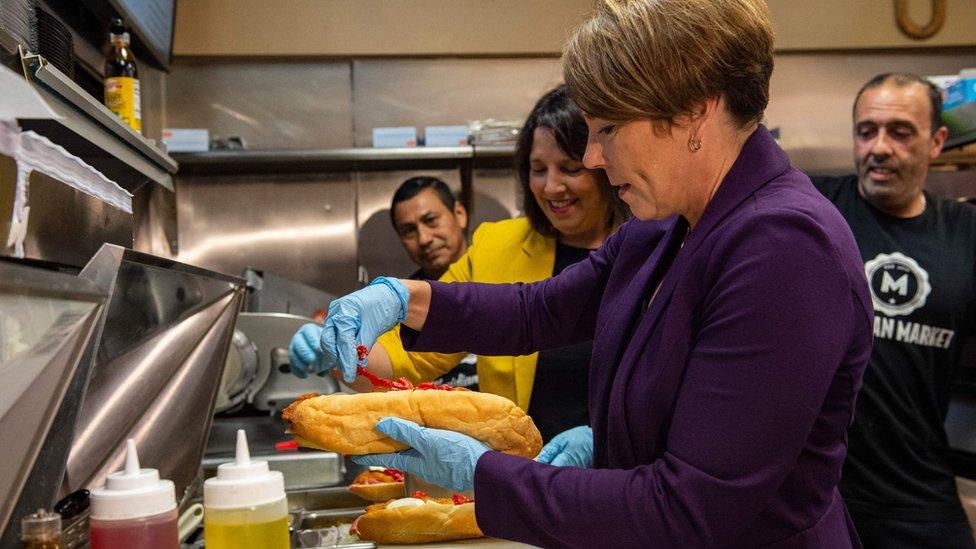Donald Trump: Why is he suddenly attacking Ron DeSantis?
- Published
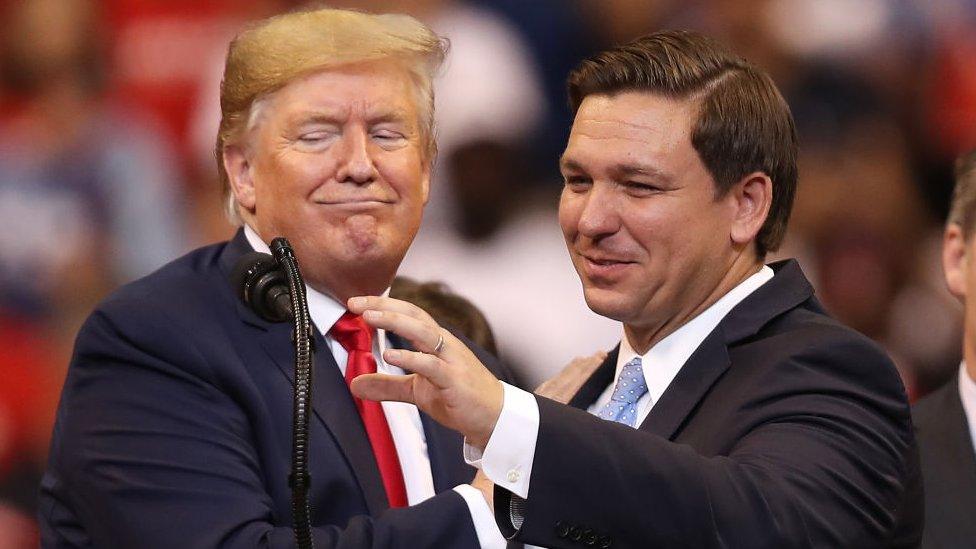
Happier times...
Here we go again. Seven years ago, Donald Trump was feuding with the Rupert Murdoch conservative media empire and launching ruthless attacks against a Florida governor who many Republicans had anointed their leading presidential contender.
The real-estate magnate was then the ultimate outsider, seeking to tear down the political establishment - left and right - on his path to the White House.
Mr Trump achieved that goal, and spent a tumultuous four years as president, but a chaotic end to his term in office and two years out of the spotlight have left him lobbing bombs from the political sidelines once more.
Now it's Florida Governor Ron DeSantis, not ex-governor Jeb Bush, who is the prime target of Mr Trump's resentment. And while the ex-president still has allies at Fox News, its coverage has treated Mr Trump like an afterthought and the Murdoch-run New York Post and Wall Street Journal appear to be on a vendetta against their former hometown celebrity.
According to anonymous insider reports, Mr Trump still harbours presidential ambitions - and is leaning toward announcing another presidential bid from his Mar-a-Lago home next Tuesday. After this week's disappointing midterm results for Republicans, where Mr Trump's hand-picked candidates struggled to win key races, the former president's advisers are counselling him to wait for the dust to settle.
Instead, with his Thursday social media posts and evening press-release diatribe against Mr DeSantis, Mr Murdoch's Newscorp and all his critics, Mr Trump seems intent on throwing that dust in his enemy's eyes. He called his Florida rival an "average Republican governor with great public relations" and made explicit the parallels to his first presidential bid.
"This is just like 2015 and 2016, a Media Assault (Collusion!), when Fox News fought me to the end until I won, and then they couldn't have been nicer or more supportive," he wrote. "The Wall Street Journal loved Low Energy Jeb Bush, and a succession of other people as they rapidly disappeared from sight, finally falling in line with me after I easily knocked them out, one by one."
On Friday morning, Mr Trump's attention turned to another possible Republican presidential rival, Virginia Governor Glenn Youngkin. He wrote on his social media site that the name "sounds Chinese" and noted that the Virginian couldn't have been elected without the ex-president's support. (Mr Youngkin pointedly tried to distance himself from Mr Trump during his successful 2021 governor campaign.)
All this is a familiar strategy - conducted with familiar viciousness and drama.
Watch: Five things to know about Ron DeSantis
In 2016, Mr Trump lashed out at prominent figures within his own party with no restraint - presidential rivals Mr Bush, Ben Carson, Ted Cruz and Marco Rubio, as well as Arizona Senator John McCain. He didn't need the respect or support of Republican leaders and wore their scorn as a badge.
At the time, those leaders feared Mr Trump would be a disastrous standard-bearer, that he would sink the party and doom them to defeat. Mr Trump won the White House anyway, but after this week - and the Republican midterm rout in 2018 and Mr Trump's 2020 re-election defeat - his party's elders are once again getting skittish.
"In '22 we're going to net-lose governorships, we're not going to pick up the number of seats in the House that we thought, and we may not win the Senate despite a president who has 40% job approval," said Chris Christie, the former New Jersey governor who ran against - and later endorsed - Mr Trump for president in 2016. "There's only one person to blame for that, and that's Donald Trump."
There are new twists to the story this time around, however.
Although the top of the party and its big-money donor base may want to move on from the ex-president, the grass-roots infrastructure of the Republican Party is run by those faithful to Mr Trump.


Republicans may have struggled this year, but they picked up congressional seats in 2016 and 2020, when Mr Trump's name was at the top of the ballot.
State legislatures and the US House of Representatives are stocked with Trump loyalists like Jim Jordan of Ohio, Andy Biggs of Arizona and Matt Gaetz of Florida.
"I am proud to endorse Donald J Trump for president in 2024," wrote Congresswoman Elise Stefanik of New York on Thursday, jumping the gun a bit on Mr Trump's possible presidential announcement.
"Republican voters determine who is the leader of the Republican Party, and it's very clear President Trump is the leader of the Republican Party."
Trump's recent attacks are also being picked up by his supporters, including Arizona governor candidate Kari Lake, who suggested that Mr DeSantis was being elevated over pro-Trump candidates. '
"Ron DeSantis goes out and gives his big speech and then they want to make it look like the Trump Republicans don't have a chance," she said during an interview on Thursday.
But Mr Trump's latest round of invective suggests that he feels under siege. And if, as indications suggest, he does run for president again, he will do so as a bomb-throwing renegade willing to tear the party down around him if challenged.
He and his supporters may have a penchant for referring to him as "President Trump" even in the year-plus since he left office, but he is an outsider once more.
- Published11 November 2022
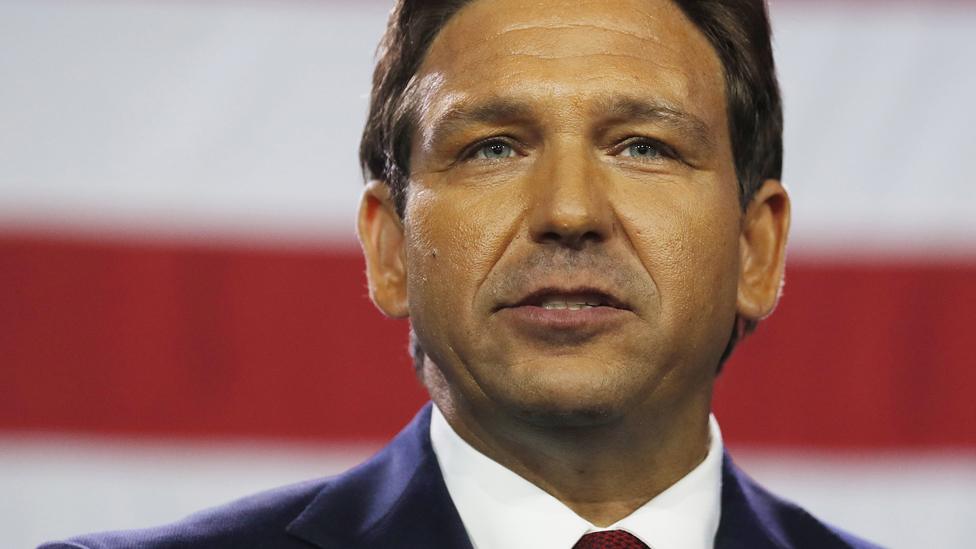
- Published9 November 2022
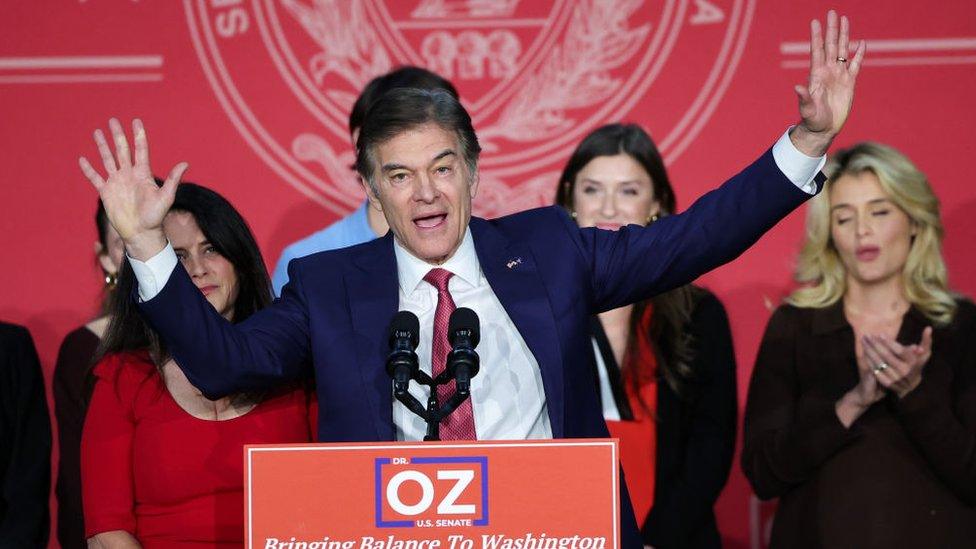
- Published10 November 2022
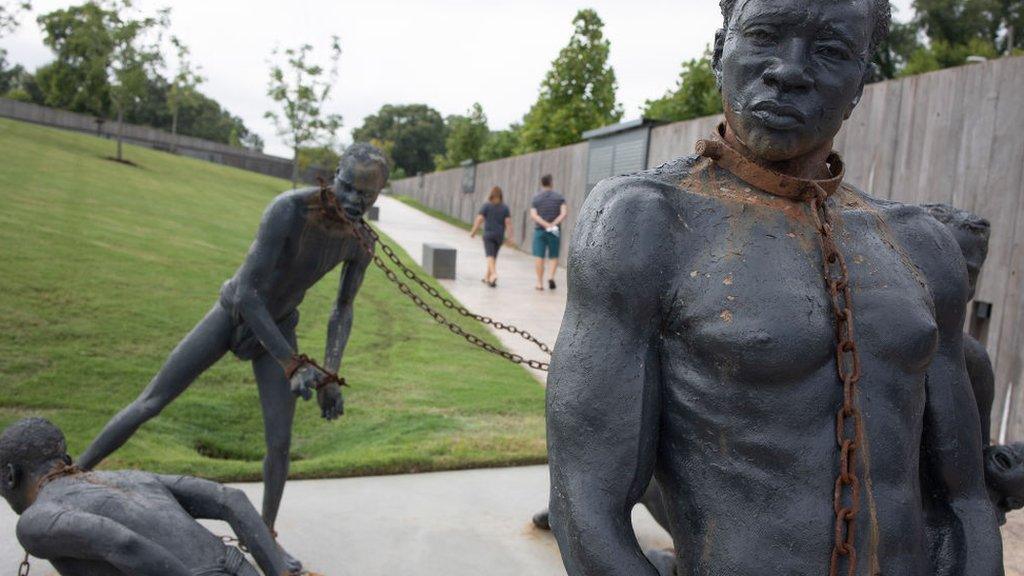
- Published10 November 2022
